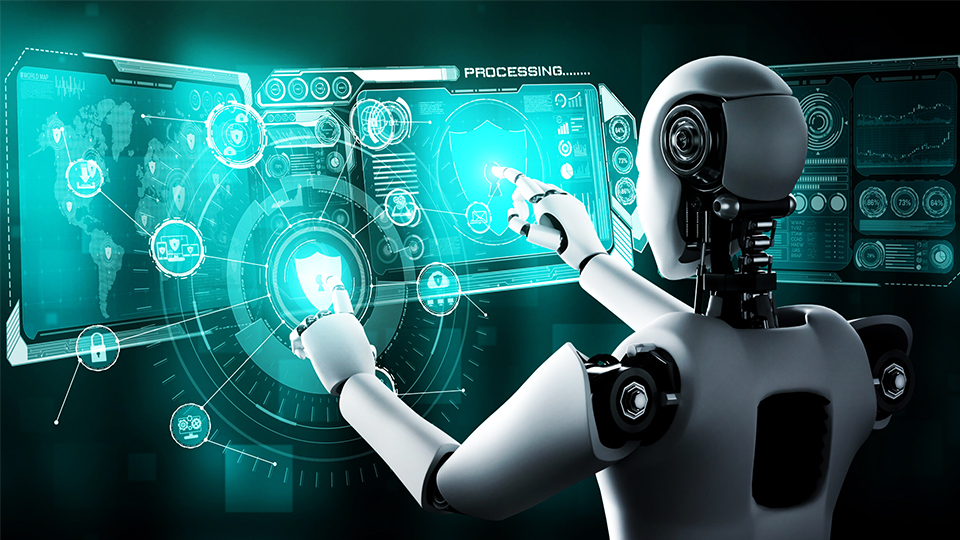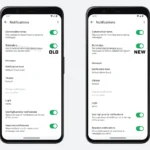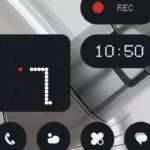Artificial Intelligence (AI) is rapidly transforming industries across the globe. Whether you’re a video journalist, an accountant, a graphic designer, or a student figuring out your career path, chances are you’ve wondered: Will AI take my job? The answer isn’t as straightforward as you might think. AI is reshaping the nature of work, automating certain tasks while leaving others firmly in the hands of human professionals. The key is understanding where AI fits in and how it can complement human skills rather than replacing them.
The Rise of AI in the Workforce
Over the last decade, AI has moved from a theoretical concept to a practical tool used by many industries. Whether it’s chatbots handling customer service inquiries or AI-powered software analyzing massive data sets in seconds, the technology is proving its worth. But this technological advancement comes with concerns. As AI becomes more adept at handling repetitive tasks, many wonder whether entire job categories will become obsolete.
One of the biggest concerns among workers, especially in creative and technical fields, is whether AI will fully take over their roles. For example, a video journalist might use AI tools for editing or organizing footage, but can AI tell a story with the same nuance and emotional connection as a human? Likely not.
AI excels at tasks that require data processing, analysis, and automation. However, it struggles with tasks that require creativity, empathy, and critical thinking, areas where humans shine. This distinction is crucial to understanding how AI fits into the modern workplace.
AI as a Complement, Not a Replacement
Let’s take a practical example: video journalism. As a video journalist for CBC Montreal, one might wonder whether AI could take over video production. ChatGPT, a popular AI tool, answers this question by suggesting that AI can be an excellent tool for improving work efficiency, but it’s unlikely to replace the unique voice, perspective, and ability to connect with an audience.
AI can automate many tedious tasks—like transcribing interviews, sorting footage, or even suggesting video edits—but it doesn’t possess the creativity needed to craft a compelling narrative. Human intuition, storytelling, and emotional intelligence are not things AI can easily replicate.
This holds true for many fields. Translators may rely on AI to assist with basic language conversions, but the depth and nuance required to convey cultural contexts or subtle meaning remain within the domain of human professionals. Accountants might use AI to automate calculations and reports, but the strategic decisions and complex interpretations of financial data are jobs that AI isn’t equipped to handle fully.
What About the Students?
The rise of AI has a particularly profound effect on students preparing for the workforce. Many young professionals are now weighing their career options with AI in mind. Some students, like those who once considered careers in translation, are turning away from fields they believe will be dominated by AI, opting for roles they see as more secure.
For example, one student decided to pursue accounting instead of translation due to concerns that AI would soon take over translation work. Others, like aspiring graphic designers, are anxious that AI-generated images and tools could replace their roles. The anxiety surrounding the future of work is palpable, especially among those about to enter the job market.
However, experts advise students not to shy away from AI but to learn how to harness its potential. AI is likely to impact all career paths in some way, but it’s not a reason to abandon a dream job. Instead, students and professionals alike should focus on understanding how AI can enhance their work.
At an AI conference in Montreal, experts stressed that creativity, critical thinking, and strategic decision-making are all aspects that AI struggles to replicate. In creative fields, professionals may use AI to take care of the more mundane aspects of their jobs—like drafting basic documents or creating preliminary designs—but AI won’t replace the imaginative process that’s at the core of creative work. As one expert put it, “There’s no way you’re applying your creativity on every single piece you’re writing.” In other words, AI might assist in routine tasks, but it won’t diminish the human element that defines creative and strategic roles.
How AI Will Reshape Work
While some anxiety around AI is justified, it’s essential to recognize the opportunities it brings. AI can take over repetitive, time-consuming tasks, allowing professionals to focus on more meaningful work. Imagine a future where AI handles all the grunt work—data entry, basic reporting, simple image creation—leaving people with more time to innovate, strategize, and connect.
For example, in accounting, AI can handle massive datasets and automate financial reports. This frees accountants to focus on offering strategic financial advice and insights. Graphic designers might use AI-generated templates to streamline the design process, allowing them to focus on refining the creative aspects of their work.
AI’s impact on jobs will likely follow this pattern: automation of routine tasks, freeing up human workers for more complex, creative, and emotionally driven roles. AI isn’t going to replace entire professions, but it will certainly reshape them.
Embracing AI in Your Career
The big takeaway for both current professionals and students entering the job market is that AI is not going anywhere. Trying to avoid it or ignoring its capabilities isn’t a long-term solution. Instead, the focus should be on learning how to work alongside AI.
If you’re a writer, AI can help with proofreading and editing. If you’re a videographer, AI can automate your post-production workflow. If you’re a teacher, AI can help you personalize learning experiences for your students by analyzing data and suggesting individualized plans. The key is to embrace AI as a tool that complements your skill set rather than fearing it as a threat.
Learning how to use AI effectively will be a key career skill moving forward. Those who learn to collaborate with AI will likely be more successful than those who try to avoid it.
Conclusion: The Future is AI-Enhanced, Not AI-Driven
The rise of AI has undoubtedly raised questions about job security across industries. But the idea that AI will take over all jobs is, for the most part, unfounded. The real challenge lies in adapting to a future where AI becomes a tool that enhances human work, not replaces it.
For students and professionals alike, this means embracing AI and learning how to use it to your advantage. As technology continues to evolve, the ability to balance AI’s efficiency with human creativity and emotional intelligence will define success in the future job market.
In short, AI may be coming for some of your tasks, but your job? That still depends on you.











